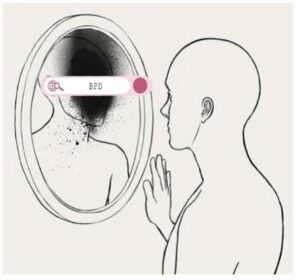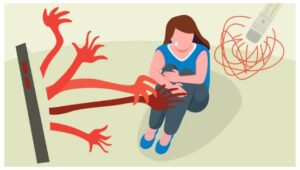The people with PTSD are those who are the survivors of war, abuse, and other forms of trauma which affect their day-to-day conditions of life. PTSD can arise after severe trauma in the form of flashbacks, anxiety, nightmares, and extreme sadness. The people suffering from this can feel emotionally numb. They might have trouble sleeping, lose interest easily, get startled easily, and also lose someone’s passion. It can affect one’s work, conditions at home as well as social life.
Right after a traumatic event, some people can go about with the trauma for weeks but if someone cannot come out of it for even a longer period then he might develop PTSD. It can occur at any age and can last from about one month to several years.
Main defining characteristics of PTSD:
- FLASHBACKS – These are intrusive memories.
- The brain’s hypothalamic, pituitary and adrenal axis cannot regulate stress hormones properly contributing to PTSD causing stress and depression.
- Effect of this can be found in the neuro, endocrine, and immune system leading to immune diseases, cardiovascular diseases, muscular-skeletal disorder, and infertility.
Susceptibility to PTSD:
- Anyone with childhood trauma.
- Anyone with a poor support system.
- Anyone with a history of mental illness.
- Anyone with substance abuse.
- Women or girls are also more likely to get PTSD due to sexual abuse or assault.
Types of PTSD:
- Normal Stress Response – mild form can be overcome easily.
- Comorbid PTSD – associated with depression, drug or substance abuse, panic disorder, and other anxiety disorder.
- Uncomplicated PTSD – tends to have flashbacks or experience their trauma over and over again.
- Acute Stress Disorder – forgetfulness affecting work, sleep, and hygiene.
- Complex PTSD – Disorder of extreme stress.
Symptoms:
- PSYCHOLOGICAL – reexperience trauma
- BEHAVIORAL – Hypervigilant and hyperarousal
- Trouble sleeping
- Angry outbursts
Support:
- Can seek help from loved ones
- Professionals
- Support groups
Another severe category other than Post Traumatic Stress can be Complex PTSD in which a person undergoes a series of traumatic events in his life whose fears got gradually accumulated over the years.
Some aspects of Complex PTSD:
- TRAUMA – abuse from parents or sexual abuse.
- A.C.E.S – Adverse Childhood Events Survey. The connection between early childhood and other illnesses.
- Complex PTSD can result in personality disorders.
Symptoms of Complex PTSD:
- Alterations in the regulation of affective impulses.
- Alterations in attention and consciousness.
- Alteration in self-perception.
- Alterations in perception of the perpetrator.
- Alterations in relationship to others.
- Somatization and/or medical problems.
- Alterations in systems of meaning.
Key developmental arrests in Complex PTSD:
- Self-acceptance
- Self Compassion
- Self-protection
- Capacity to draw comfort from a relationship
- Ability to relax
- Capacity for full self-expression
- Willpower and motivation
- Peace of mind
- Self-care
- A belief that life is a gift
- Self-esteem
- Self-confidence
PTSD Treatment:
- THERAPY:
- Exposure therapy
- Group therapy
- Cognitive processing therapy
- Eye movement desensitization and reprocessing
- Stress inoculation training
- MEDICATION:
- Antidepressants
- Anti-anxiety
Overcoming PTSD:
- Mindfulness meditation
- Regain focus through physical activity
- Aromatherapy
- Art therapy
- Pets
- Learn about trauma and PTSD
- Join a support group
- Practice relaxation techniques
- Pursue outdoor activities
- Confide in a person you trust
- Spend time with positive people
- Avoid alcohol and drugs
- Enjoy the peace of nature
Proper treatment and consultation with professionals help alleviate symptoms of PTSD, preventing its further accentuation. Also, it can help to safely manage self-medication such as drugs, alcohol, and other substance abuse. Thus preventing further worsening of symptoms and overall health.
Feel free to reach out to us for counseling and psychotherapy sessions from our trained psychologists, and psychotherapists.




